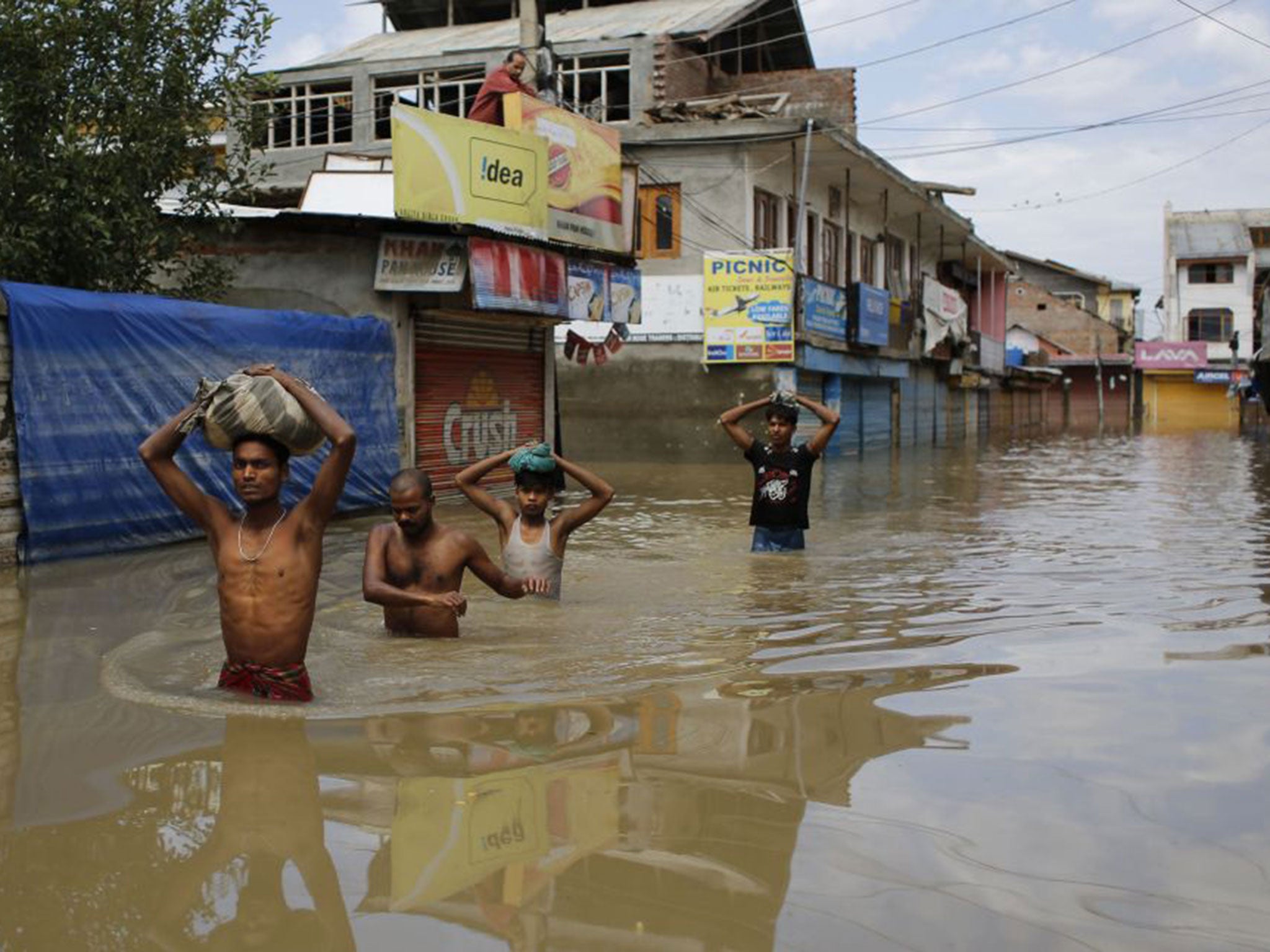India fights to prevent spread of diseases after Kashmir flooding
More than 200,000 people have been rescued in the past eight days

Your support helps us to tell the story
From reproductive rights to climate change to Big Tech, The Independent is on the ground when the story is developing. Whether it's investigating the financials of Elon Musk's pro-Trump PAC or producing our latest documentary, 'The A Word', which shines a light on the American women fighting for reproductive rights, we know how important it is to parse out the facts from the messaging.
At such a critical moment in US history, we need reporters on the ground. Your donation allows us to keep sending journalists to speak to both sides of the story.
The Independent is trusted by Americans across the entire political spectrum. And unlike many other quality news outlets, we choose not to lock Americans out of our reporting and analysis with paywalls. We believe quality journalism should be available to everyone, paid for by those who can afford it.
Your support makes all the difference.Emergency workers battled today to prevent waterborne diseases such as cholera from spreading as fetid water swilled around the Kashmir Valley more than a week after what was said to be the worst flooding in decades.
More than 75,000 people were still in partly submerged homes in Srinagar, Kashmir’s main city. Both the Indian and Pakistani sides of the disputed Himalayan region have seen extensive flooding this month. Hundreds of people have been killed and tens of thousands are homeless.
"Floating carcasses have become a big source of worry with most houses still waterlogged. We are struggling to get in touch with government health officials," said Abul Syed Rahman, who owns three hotels in Kashmir.
Altaf Hussein, a paediatrician who was treating flood victims in improvised camps, complained of shortages of life-saving drugs, intravenous fluids and sanitary products.
"We need aerial fumigation ... as these waters can cause waterborne diseases, including cholera," said Hussein.
Both the Indian and Pakistani sides of the disputed Himalayan region have seen extensive flooding this month with Srinagar particularly hard hit. Hundreds of people have been killed and tens of thousands are homeless.
Authorities say the cost of damage in Indian-administered Kashmir may run into billions of dollars.
There were signs the relief operation was gaining traction as authorities brought in heavy-duty pumps to evacuate water from low-lying residential areas, including two from state-controlled Indian oil company ONGC.
The federal government delivered 25 water filtration plants with the capacity to filter 400,000 litres a day, and 13 tonnes of water purification tablets.
More than 200,000 people have been rescued in the past eight days and communication networks partially restored.
"Finally, we are seeing some government officials trying to restore basic services. In the last eight days we had no help from the government," said Alam Wani, a Srinagar bank official.
Wani's two-storey house has been partially submerged since the onset of torrential rain, forcing him to move into a mosque with his family of eight.
Reuters
Join our commenting forum
Join thought-provoking conversations, follow other Independent readers and see their replies
Comments